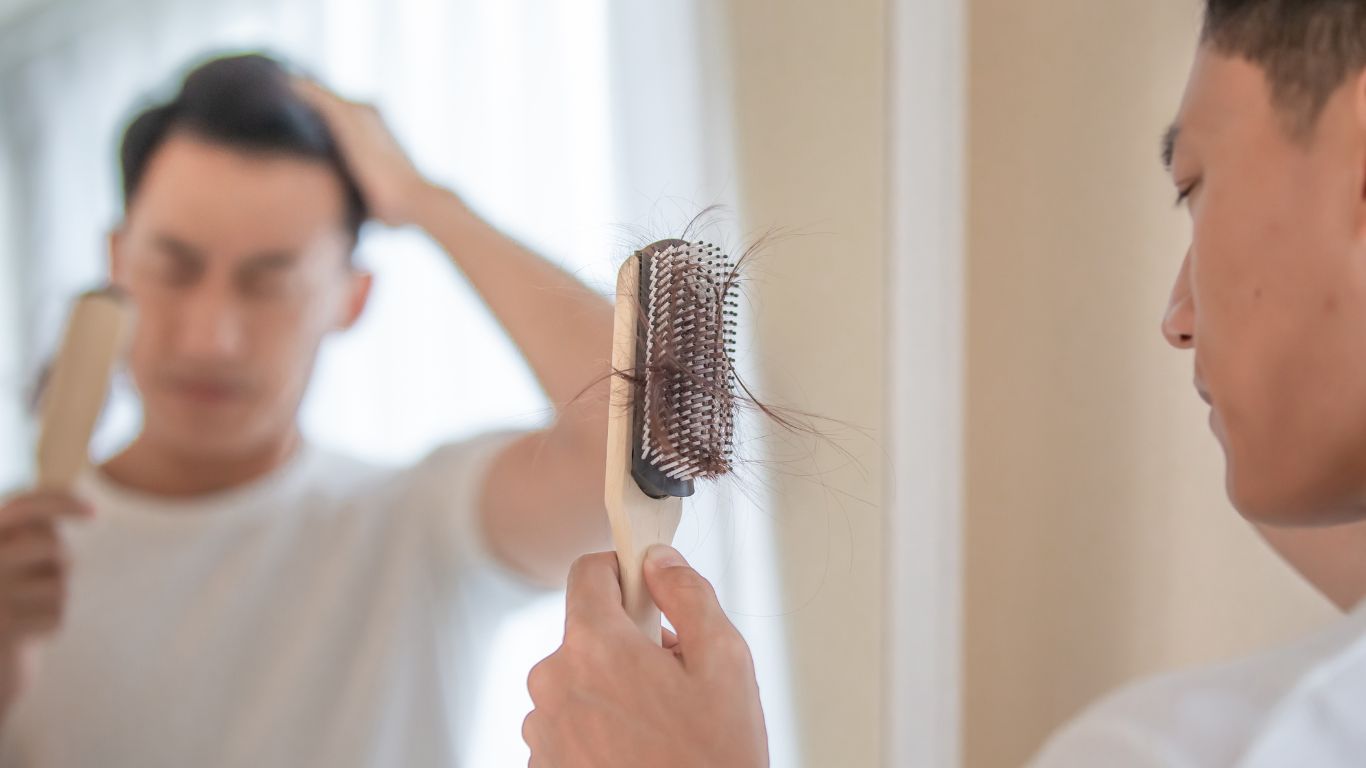Does Alcohol Addiction Affect Your Hair?
There are several reasons why excessive alcohol consumption could lead to serious health issues. Although hair growth and drinking alcohol aren’t always directly related, there are certain health factors associated with alcohol consumption that could cause other health issues which could impact your overall hair growth. It’s important to remember that in the process of developing an alcohol addiction, you are causing severe stress on other parts of your body’s functions.
How Are Hair Loss and Addiction Related?
There may be other factors with your drinking that contribute to hair loss. For example, chronic alcohol use can result in nutrient deficiencies and key vitamins that produce hair generation. Of course, there are other long-term health consequences that you may face as a result of alcohol or drug abuse. When your body doesn’t produce the nutrients that you need, you put yourself in a position of not only hair loss but other serious health issues. For instance, it’s not uncommon for a person with alcohol addiction to also suffer from some type of liver disease or heart issues as a result of alcohol abuse. Although hair loss is something that may be frustrating or embarrassing, it’s important to recognize that your life could be in jeopardy as a result of your substance abuse.
Will Hair Grow Back After Quitting Alcohol and Going Sober?
Your body is incredible in the sense that it begins to heal from the impact of alcohol abuse within just a few hours from the time that you last consume your drink of choice. Once you stop drinking excessive amounts, you will see that your different levels of important nutrients will start to get back to normal. If you’re a woman, your level of estrogen will start to level out and other related nutrient deficiencies will start to fix themselves.
Help for Alcohol Addiction at TruPath
At TruPath, we offer a multitude of treatment programs that will help you to quit drinking alcohol. It’s possible that before you begin your respective treatment programs, you may need to begin an alcohol detox program. If you have to begin your recovery program in alcohol detox, you will need to spend a minimum of seven days in a detox program before you can transition into an addiction treatment program. For example, you may want to transition into an inpatient rehab program which will provide you with the around-the-clock care that you experienced during the time that you were in detox. You will have the opportunity to live on our campus and also interact with other people who are working through their own alcohol or drug addiction treatment program.
If you’re unable to commit to an inpatient treatment program due to work or school responsibilities, you can still receive the help and the care that you need through an outpatient treatment program. An outpatient treatment program is something that will be customized according to your schedule and your needs. Keep in mind that you can also transition into an outpatient program following a residential inpatient program. On average, your addiction treatment program will last anywhere between 30 and 90 days and will help to provide you with the tools and the resources that you need during this stage of your recovery.
If you have concerns about the way that alcohol is impacting your hair growth or other parts of your physical and mental well-being, you should always reach out to our addiction experts for more assistance. We are here to provide you with the tools and resources that you need to work through your addiction and overcome your addiction once and for all. For more information, get in touch with us.
